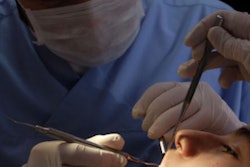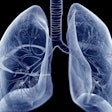
Approximately half of dentists do not offer smoking cessation counseling or treatment to their patients, according to survey results published in the October issue of the Journal of the American Dental Association.
Additionally, only 40% of survey respondents knew smoking cessation counseling and treatment (SCCT) are included in most insurance benefit packages, the authors reported.
"Dentists can benefit from more formal training and resources around SCCT and access to reimbursement for having these crucial conversations with their patients," wrote the group, led by Purnima Kumar, BDS, PhD, a professor at Ohio State University College of Dentistry (JADA, October 2021, Vol. 152:10, pp. P872-873).
Smoking, vaping, or using smokeless tobacco products significantly increases the risk of developing periodontitis, caries, and oral cancer, and it also leads to poorer surgical outcomes for procedures, including extractions and implants. Each year a patient does not use tobacco reduces his or her odds of developing periodontitis by 3.9% and the risk of tooth loss by 6%. However, it takes 15 years of no tobacco use for ex-smokers to reach the same risk level as those who never smoked.
Because smoking cessation rates climb when patients receive advice from any healthcare professional, dentists and others can be vital in helping patients quit using tobacco, according to the authors.
To better understand how many dentists provide smoking cessation counseling and treatment, Kumar and colleagues sent a survey to the ADA Clinical Evaluators Panel, a volunteer panel composed of ADA members in the U.S.
Of the 283 dentists who responded to the survey, 49% said they do not offer smoking cessation counseling or treatment. Approximately 40% offer counseling, and only 8% offer smoking cessation counseling and treatment. In addition, 25% of respondents who do not offer counseling or treatment are current or past smokers, vapers, or users of smokeless tobacco, the authors noted.
Only 40% of respondents were aware that many insurance programs offer reimbursement for smoking cessation counseling and treatment, they wrote.
To be effective, dentists need formal training, access to resources, and reimbursement, according to Kumar and colleagues.
"Our data point to the need for SCCT training to be an important part of dental school curricula, dental professionals to partner with tobacco prevention agencies, and increasing awareness that SCCT is a covered medical benefit," they wrote.



















